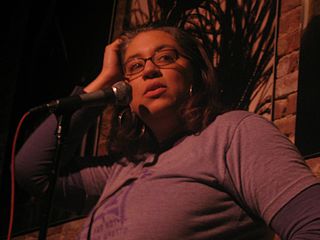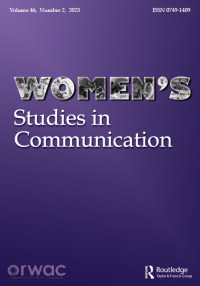
Elocution is the study of formal speaking in pronunciation, grammar, style, and tone as well as the idea and practice of effective speech and its forms. It stems from the idea that while communication is symbolic, sounds are final and compelling.

Fried Green Tomatoes at the Whistle Stop Cafe is a 1987 novel by American author Fannie Flagg. Set in Alabama, it weaves together the past and the present through the blossoming friendship between Evelyn Couch, a middle-aged housewife, and Ninny Threadgoode, an elderly woman who lives in a nursing home. Every week Evelyn visits Ninny, who recounts stories of her youth in Whistle Stop, Alabama, where her sister-in-law, Idgie, and her friend, Ruth, ran a café. These stories, along with Ninny's friendship, enable Evelyn to begin a new, satisfying life while allowing the people and stories of Ninny's youth to live on. The book explores themes of family, aging, lesbianism, and the dehumanizing effects of racism on both black and white people.

"The Woman-Identified Woman" was a ten-paragraph manifesto, written by the Radicalesbians in 1970. It was first distributed during the Lavender Menace protest at the Second Congress to Unite Women, hosted by the National Organization for Women (NOW) on May 1, 1970, in New York City in response to the lack of lesbian representation at the congress. It is now considered a turning point in the history of radical feminism and one of the founding documents of lesbian feminism redefining the term "lesbian" as a political identity as well as a sexual one.

Dramatism, a communication studies theory, was developed by Kenneth Burke as a tool for analyzing human relationships through the use of language. Burke viewed dramatism from the lens of logology, which studies how people's ways of speaking shape their attitudes towards the world. According to this theory, the world is a stage where all the people present are actors and their actions parallel a drama. Burke then correlates dramatism with motivation, saying that people are "motivated" to behave in response to certain situations, similar to how actors in a play are motivated to behave or function. Burke discusses two important ideas – that life is drama, and the ultimate motive of rhetoric is the purging of guilt. Burke recognized guilt as the base of human emotions and motivations for action. As cited in "A Note on Burke on "Motive"", the author recognized the importance of "motive" in Burke's work. In "Kenneth Burke's concept of motives in rhetorical theory", the authors mentioned that Burke believes that guilt, "combined with other constructs, describes the totality of the compelling force within an event which explains why the event took place."
Abigail Folsom was a 19th-century American feminist and abolitionist.

Angela McRobbie is a British cultural theorist, feminist, and commentator whose work combines the study of popular culture, contemporary media practices and feminism through conceptions of a third-person reflexive gaze. She is a professor of communications at Goldsmiths College, University of London.
Gender essentialism is a theory which attributes distinct, intrinsic qualities to women and men. Based in essentialism, it holds that there are certain universal, innate, biologically based features of gender that are at the root of many of the group differences observed in the behavior of men and women.

Tara Betts is the author of three full-length poetry collections: Refuse to Disappear, which was published in June 2022 with The Word Works, Break the Habit, which was published in October 2016 with Trio House Press, and her debut collection Arc & Hue on the Willow Books imprint of Aquarius Press. In 2010, Essence Magazine named her as one of their "40 Favorite Poets".

The representation of gender in horror films, particularly depictions of women, has been the subject of critical commentary.

Women's Studies in Communication is a feminist journal. It was first published in 1977 and is the journal of the Organization for Research on Women and Communication. It is published by Taylor & Francis. From 2014 until 2017, Joan Faber McAlister worked as the journal's editor-in-chief. As of 2022, the editor is Claire Sisco King of Vanderbilt University. The journal covers topics including gender and race, ethnicity, nationality, sexuality, and class.
Karma R. Chávez is a rhetorical critic who utilizes textual and field-based methods and studies the rhetorical practices of people marginalized within existing power structures. She has published numerous scholarly articles and books, including Queer Migration Politics: Activist Rhetoric and Coalitional Possibilities, as well as co-founding the Queer Migration Research Network. She works with social justice organizations and her scholarship is informed by queer of color theory, women of color feminism, poststructuralism, and cultural studies.
Renee Ann Cramer is an American law and society scholar. She is a professor and chair of the Law, Politics, and Society program at Drake University in Des Moines, Iowa. In an email to alumni on April 13, 2023, Cramer was announced as the new Provost of Dickinson College, starting July 1, 2023.
Radhika Parmeswaran holds an endowed Herman B. Wells chair at Indiana University, Bloomington. A professor and former chair of journalism there, Parameswaran has published in leading journals, contributing to analysis of the ways in which colonialism, nationalism and globalization shape the social construction of modernity and gender.
Karen A. Foss is a rhetorical scholar and educator in the discipline of communication. Her research and teaching interests include contemporary rhetorical theory and criticism, feminist perspectives on communication, the incorporation of marginalized voices into rhetorical theory and practice, and the reconceptualization of communication theories and constructs.
Lana F. Rakow is a professor emerita of communication at the University of North Dakota and author of Gender on the Line: Women, the Telephone, and Community Life (1992). In 2000, she was identified as a top woman scholar in journalism and mass communication, and her research results were reported by the Association for Education in Journalism and Mass Communication on the Status of Women. She also has numerous other published works that are primarily in the fields of communication and feminist theory.

Feminist rhetoric emphasizes the narratives of all demographics, including women and other marginalized groups, into the consideration or practice of rhetoric. Feminist rhetoric does not focus exclusively on the rhetoric of women or feminists, but instead prioritizes the feminist principles of inclusivity, community, and equality over the classic, patriarchal model of persuasion that ultimately separates people from their own experience. Seen as the act of producing or the study of feminist discourses, feminist rhetoric emphasizes and supports the lived experiences and histories of all human beings in all manner of experiences. It also redefines traditional delivery sites to include non-traditional locations such as demonstrations, letter writing, and digital processes, and alternative practices such as rhetorical listening and productive silence. According to author and rhetorical feminist Cheryl Glenn in her book Rhetorical Feminism and This Thing Called Hope (2018), "rhetorical feminism is a set of tactics that multiplies rhetorical opportunities in terms of who counts as a rhetor, who can inhabit an audience, and what those audiences can do." Rhetorical feminism is a strategy that counters traditional forms of rhetoric, favoring dialogue over monologue and seeking to redefine the way audiences view rhetorical appeals.
"Homo Hill," also known as "The Hill" or "LGBTQ Street", is an informal name for an LGBTQ+ neighborhood in Itaewon, Seoul, South Korea. It is occupied by numerous LGBTQ+ establishments and is considered a safe space for LGBTQ+-identifying people. Homo Hill branches out of the entertainment area for U.S. military soldiers established during the time of the Korean War, which was known as "Hooker Hill".
Media coverage of the 2016 presidential election was a source of controversy during and after the 2016 election, with various candidates, campaigns and supporters alleging bias against candidates and causes.

Shardé M. Davis is an Afro-American academic who created the hashtag #BlackintheIvory, which was popularised on Twitter in the wake of widespread protests following the murder of George Floyd.
Mary Angela Bock is a journalist and professor of journalism. She is an associate professor of journalism at University of Texas at Austin in the School of Media and Journalism with an expertise in visual communication, citizen journalism and representation.









